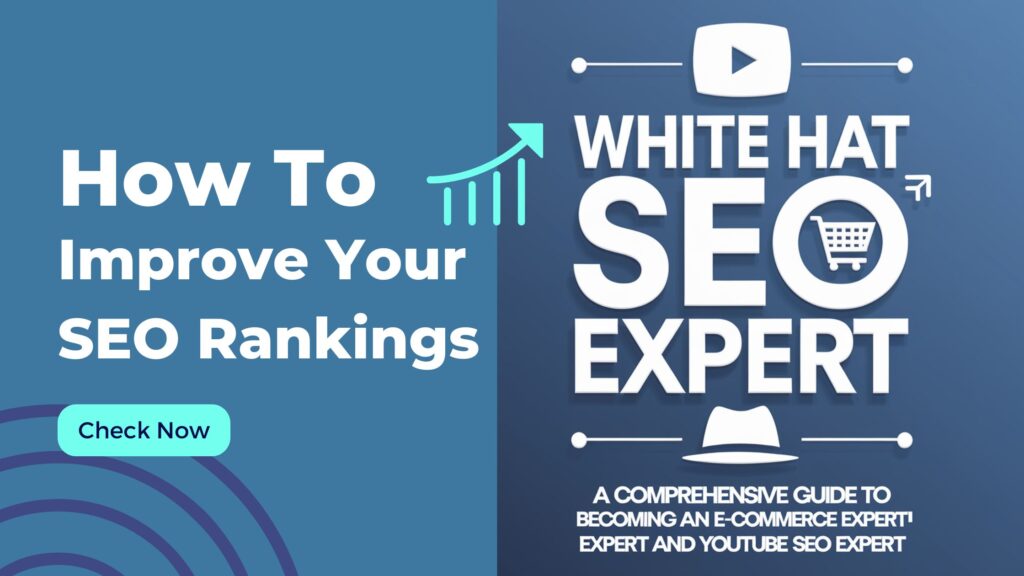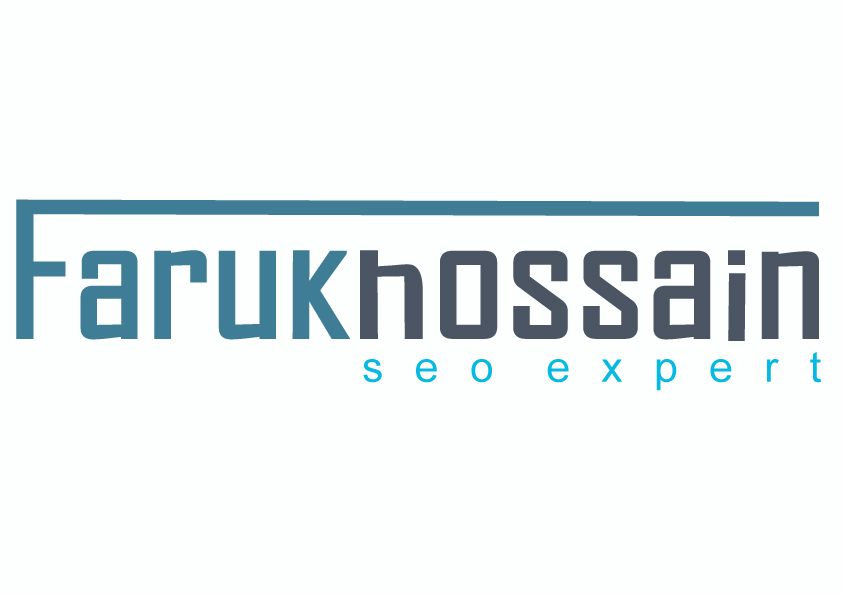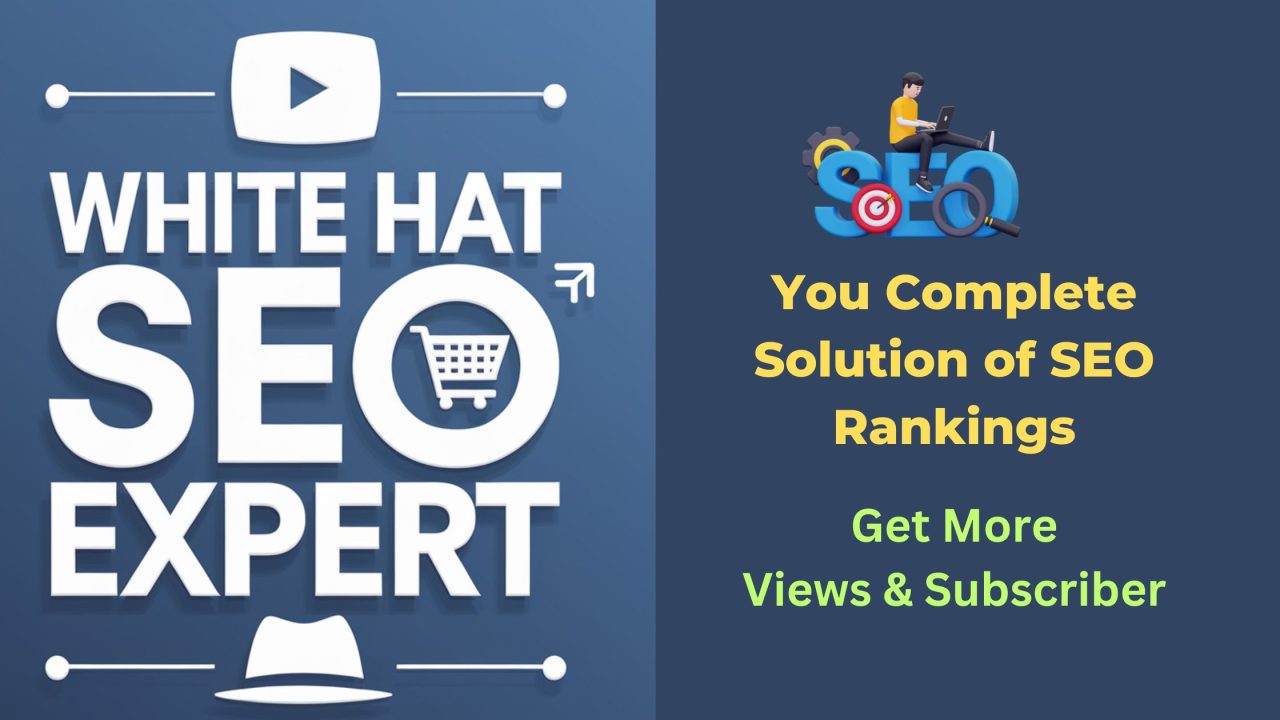White Hat SEO Expert: The Comprehensive Guide to Becoming an E-commerce Expert, and YouTube SEO Specialist
Discover the essential techniques for mastering White Hat SEO, enhancing your E-commerce sales, and excelling on YouTube with advanced SEO strategies. This extensive guide will teach you how to ethically elevate your rankings, expand your online business, and optimize your YouTube content for optimal visibility.
In today’s dynamic digital environment, acquiring proficiency in SEO (Search Engine Optimization) is vital for anyone aspiring to expand their online business or presence.

Whether your goal is to ethically enhance your website rankings through White Hat SEO, increase the visibility of your e-commerce enterprise, or ensure the success of your YouTube channel, a solid understanding of SEO principles is essential.
This guide will thoroughly explore the fundamental concepts and strategies associated with White Hat SEO, e-commerce SEO, and YouTube SEO, equipping you with the knowledge to become proficient in these domains and foster sustainable growth.
Table of Contents
1. What is White Hat SEO?
2. Why Is White Hat SEO Important?
3. Key White Hat SEO Techniques
- Content Quality
- Keyword Research and Use
- Backlinking and Outreach
4. E-commerce SEO: How to Optimize Your Online Store
- Importance of SEO in E-commerce
- Product Page Optimization
- Structured Data for E-commerce
5. Best Practices for E-commerce SEO
- On-Page SEO for Product Listings
- Site Speed and Mobile Optimization
- User Experience (UX) Design
6. How to Master YouTube SEO
- Understanding YouTube’s Algorithm
- Optimizing Video Titles, Descriptions, and Tags
- Thumbnail Optimization
7. Key YouTube SEO Strategies
- Video Length and Engagement
- Importance of Subtitles and Closed Captions
- YouTube Analytics and Optimization
8. Combining White Hat SEO for Websites, E-commerce, and YouTube
9. Common Mistakes to Avoid in SEO
10. Tools and Resources for SEO Success
11. SEO Trends to Watch in 2024
12. Conclusion
13. FAQs
What is White Hat SEO?
White Hat SEO encompasses the application of ethical and transparent strategies aimed at optimizing a website to enhance its visibility and rankings on search engines such as Google. In contrast to Black Hat SEO, which employs shortcuts and deceptive practices, White Hat SEO focuses on sustainable, long-term methods that adhere to search engine guidelines.
Consider White Hat SEO as adhering to the established rules of the industry. While immediate results may not be evident, the trust and authority built through these practices will yield benefits over time.
Why Is White Hat SEO Important?
Search engines, particularly Google, emphasize user experience and relevant content. By optimizing your site with ethical techniques, you increase the likelihood of achieving higher rankings in search results, thereby avoiding penalties and algorithm changes that often target manipulative tactics.
For instance, if Google recognizes that your website provides high-quality content, loads efficiently, and offers easy navigation, it will rank you more favorably compared to a competitor relying on spammy backlinks or excessive keyword usage.
Key White Hat SEO Techniques
1. Content Quality
Content remains paramount. Producing high-quality, valuable content that meets user needs is fundamental to White Hat SEO. This includes various formats such as blog posts, videos, infographics, and other resources that address common inquiries and offer solutions.
2. Keyword Research and Use
Utilizing tools like Google Keyword Planner, Ahrefs, or SEMrush allows you to discover the keywords your target audience is searching for. Naturally incorporating these keywords into your content aids search engines in understanding the focus of your website.
3. Backlinking and Outreach
Establishing a robust backlink profile from reputable sources signals to search engines that your website is trustworthy. White Hat link-building techniques include guest posting, creating shareable content, and engaging in outreach with influencers.
E-commerce SEO: Strategies for Enhancing Your Online Store
E-commerce SEO is vital for the success of any online retail business. To draw traffic, convert visitors into buyers, and maintain a competitive edge in a saturated market, your website must achieve high search engine rankings.
Significance of SEO in E-commerce
It is noteworthy that more than 40% of e-commerce traffic is generated through organic search results. Consequently, optimizing your online store for search engines is imperative for boosting sales and outpacing competitors.
Key Strategies for E-commerce SEO
1. Optimization of Product Pages
Ensure that your product pages are optimized for search engines. This involves crafting unique product descriptions, incorporating relevant keywords, and enhancing images with appropriate alt tags. Refrain from using manufacturer descriptions verbatim, as this may negatively impact your rankings.
2. Implementing Structured Data for E-commerce
Utilizing structured data (schema markup) can assist search engines in comprehending and presenting your product details more effectively in search results. For example, you can showcase star ratings, pricing, and availability directly on the search engine results page (SERP), thereby improving your click-through rate.
Mastering YouTube SEO
With over 2 billion active users each month, YouTube serves as a significant platform for both content creators and businesses. However, merely uploading videos is insufficient. To differentiate yourself, it is essential to optimize your content for YouTube’s search algorithm.
Comprehending YouTube’s Algorithm
The algorithm of YouTube prioritizes videos that retain users on the platform for extended periods. Therefore, factors such as watch time, engagement (likes, comments, shares), and click-through rates are critical in determining your video rankings.
Enhancing Video Titles, Descriptions, and Tags
When uploading a video, ensure that your title is engaging and includes relevant keywords. The description should provide valuable information and contain links to related videos or external resources. Tags should accurately represent the main themes of the video while avoiding the inclusion of irrelevant terms.
Key YouTube SEO Strategies
1. Video Duration and Viewer Engagement
Although shorter videos are generally more digestible, longer videos often achieve superior watch time, particularly when they deliver valuable information. Strive to maintain viewer engagement throughout the entirety of the video to enhance your rankings.
2. Significance of Subtitles and Closed Captions
Incorporating subtitles enhances accessibility and aids non-native speakers in comprehending your content more effectively. Additionally, it contributes to SEO, as YouTube can index the text from captions, thereby increasing your likelihood of ranking for a broader range of keywords.
3. Utilizing YouTube Analytics for Optimization
YouTube Analytics serves as a robust tool for monitoring your video performance. Leverage the insights gained to identify viewer drop-off points, determine which keywords generate traffic, and refine your future video content accordingly.

Integrating White Hat SEO Across Websites, E-commerce, and YouTube
To enhance your online visibility, it is crucial to harmonize SEO strategies across your website, e-commerce platform, and YouTube channel. By adopting a cohesive approach, utilizing pertinent keywords, and prioritizing user experience, you can establish authority across all channels.
For example, if you are marketing products online, optimize your website to rank for general product keywords, enhance your YouTube channel to feature product reviews and tutorials, and ensure that your e-commerce site employs structured data for improved visibility.
Common SEO Pitfalls to Avoid
- Keyword Stuffing: Refrain from excessively inserting keywords into your content. Prioritize user experience above all.
- Overlooking Mobile Optimization: Given that a significant portion of searches occurs on mobile devices, it is vital that your website is optimized for mobile use.
- Disregarding Page Speed: Slow loading times can severely impact both SEO rankings and user experience.
Tools and Resources for SEO Success
- Google Search Console: Track the performance of your website.
- Ahrefs: Evaluate backlinks and keyword strategies.
- Yoast SEO: Enhance on-page SEO for WordPress platforms.
- TubeBuddy: Assist with YouTube SEO and content enhancement.
SEO Trends to Monitor in 2024
- Voice Search Optimization: The increasing prevalence of smart devices is driving the popularity of voice search.
- AI and Automation in SEO: Artificial intelligence tools are facilitating content generation and keyword research.
- Core Web Vitals: Google remains focused on user experience, making Core Web Vitals a critical factor.
Conclusion
Achieving proficiency in White Hat SEO, E-commerce SEO, and YouTube SEO requires time and dedication. However, with consistent effort and effective strategies, you can greatly enhance your online visibility and foster business growth. By prioritizing ethical, user-focused approaches, you can establish a resilient online presence that endures over time.
FAQs
1. What distinguishes White Hat SEO from Black Hat SEO?
Ans: White Hat SEO employs ethical and sustainable techniques to enhance rankings, whereas Black Hat SEO utilizes deceptive methods that may result in penalties.
2. How can I enhance my e-commerce SEO?
Ans: Concentrate on optimizing product pages, implementing schema markup, and enhancing site speed and user experience.
3. What are the essential components of YouTube SEO?
Ans: Key elements include optimizing titles, descriptions, tags, and thumbnails, as well as boosting video engagement and watch time.
4. How long does it typically take to observe results from White Hat SEO?
Ans: Generally, it takes about 3-6 months to see notable improvements, although results can vary based on competition and existing SEO efforts.
5. Are SEO tools essential for achieving success?
Ans: While not obligatory, tools such as Google Search Console and Ahrefs can offer valuable insights and assist in monitoring your progress.


